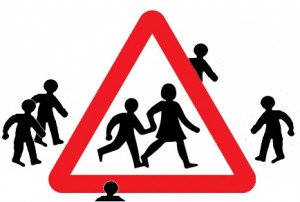 Ofsted has again complained that a lack of regulation prevents it from taking stronger enforcement action against illegally unregistered schools and failing independent schools, many of which are faith based. The inspectorate has offered its views in its Chief Inspector’s latest annual report to the Education Secretary, which was been laid before Parliament yesterday.
Ofsted has again complained that a lack of regulation prevents it from taking stronger enforcement action against illegally unregistered schools and failing independent schools, many of which are faith based. The inspectorate has offered its views in its Chief Inspector’s latest annual report to the Education Secretary, which was been laid before Parliament yesterday.
The Chief Inspector’s previous annual report warned that more illegally unregistered schools were being established to try and avoid meeting various education standards, including about having to teach about fundamental civic values. The Chief Inspector’s latest report warns of education settings that are continuing to operate ‘on the cusp of the law’ such as by exploiting loopholes and ambiguity in definitions of what constitutes full time education, a home educated child or a school.
A sizable proportion of the suspected unregistered schools are revealed to be yeshivas and madrasas that provide religious instruction and in some cases for up to five or six days a week. Ofsted currently has no power to gain entry to suspected unregistered schools or to close them down. In October Accord welcomed the first ever criminal convictions for operating an unregistered school.
Today’s report also warns about the frequency of independent schools that are not members of a recognised school association which fail school inspections for extended periods of time. Non-association independent schools that are found wanting are revealed to more likely be faith based. According to the Chief inspectors latest report, 46% of faith schools in this group have been assessed as inadequate or requiring improvement, compared to 25% of those which are not faith based.
Independent schools that are part of a recognised association are able to chose their own school inspector, which Accord has long complained creates an undesirable conflict of interest. The Chief Inspector’s latest report has flagged her concern that Ofsted is not able to scrutinise these other inspectorates and particularly the School Inspection Service. Most of the schools the Service inspects in Britain are Exclusive Brethren or Steiner schools.
Chair of the Accord Coalition for Inclusive Education, the Reverend Stephen Terry, said ‘Inspectors should seek to uphold the rights, safety and opportunities of all pupils. Ofsted appears to have emerged from a long period of being overly deferential towards practices within the faith school sector that threaten pupils’ long term interests. This is encouraging and long overdue.’
‘In March the Government revealed it would review Ofsted’s powers in relation to unregistered schools as part of a new integration strategy. This is important, but it should also implement wider reforms, such as to the curriculum, to help ensure all pupils are receiving a broad and balanced education.
‘As a matter of priority it should take forward the very recent recommendations of the Commission on Religious Education that all schools teach about a range of religions and beliefs in society. This is one way the school system can better adapt to meeting current challenges and the needs of a diversifying society.’



[…] there are no powers to close them down and some have continued to operate’. Ofsted has previously described how some illegal schools ‘engage in a game of cat and mouse with our […]